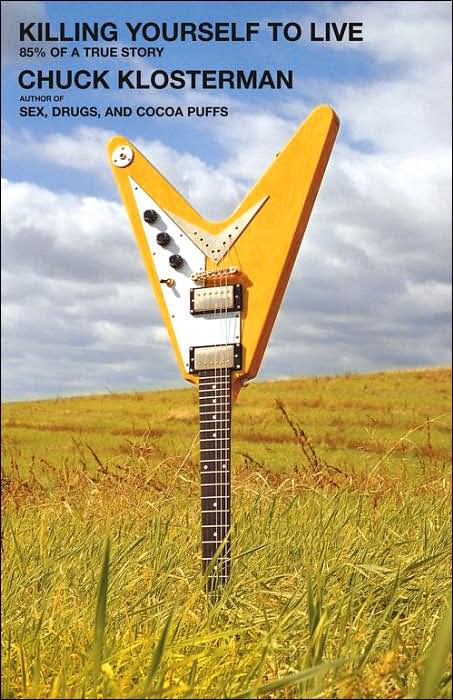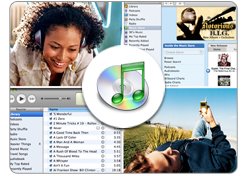How I Learned to Stop Worrying and Love Music

It seems inappropriate to review a post-modern autobiography in a discursive, analytical style. So I will riff off Chuck's story about music culture by offering a glimpse of my own.
The last few years I have noticed my musical snobbery begin to wane a bit. Yet my love of music has grown in inverse proportion to my snobbery. I still seek out progressive new acts and obscure influential back-catalogue artists. But my attitude has become considerably more open to mainstream tastes of the great bulge in the middle of the bell-curve of the North American music culture.
How did I go from a sarcastic-categorizer to a charitable appreciator of music? There are at least four things that have had a direct impact on my attitude toward music.
(1) Buying an iPod. Why? Becuase my iPod re-introduced me to my own collection of classic rock and mainstream 90's rock which I grew up on. My iPod has reminded me that an artist doesn't have to be unknown to be worth listeing to.
(2) Playing in bands. Feeling the brunt of others' snobbery during and after performing has made me second guess the value of a folded-arm approach to music.
(3) Getting away from NY. As Klosterman points out, people only go to shows in New York City to be seen there, to say they saw a bad before they were big, or to say that a band everyone likes actually sucks. Moving from a NY orbit to a Philly orbit - where they are considerably less snobby and considerably more fun - has shaped my approach to music.
(4) Reading Killing Yourself to Live by Church Klosterman. This meandering narrative indictment of NY hipster culture was the straw that broke the camel's back. The book is full of telling lines ("I have more CDs that 90% of Americans, but less CDs that 60% of my friends"). By telling the story of his visit to all the famous rock death sites, Klosterman helped me re-discover a love for music. For anyone with enough musical sophistication to visit ALIEN CORPSE, Killing Yourself to Live is a must-read.
These are four clear steps that led toward my de-snobbification. If I come up with eight more I could start a self-help group. But in the meantime these experiences have softened my snobbery without undermining my active engagement in music culture. Is it inevitable that such a softening will usher in a deadening of my musical sophistry and wit? Maybe. Although I hope not, that may be a risk worth taking...


